Lost And Words In The Appenines, Italy
‘…and I thought to myself; Oh son you may be lost in more ways than one, but I have a feeling that it is more fun than knowing exactly where you are’. Passenger
Two things inspired me to wander off into the mountains alone and with no real plan for three days. The first was simply the location of my temporary residence; on, or very close to, the ancient pilgrim route the Via Francigena and the Parco dei Cento Laghi in the Italian Apennines, the second was Eric Newby. Until two weeks ago, that name would have meant nothing to me. However thanks to the abandonment of a (hopefully read) book on the shelf, entitled ‘Love and War in the Apennines’ of which the aforementioned is the author, it has become one I will now always associate with the mountain range known as ‘the spine of Italy’.
The Via Francigena was already well established before the first millennium and was taken by thousands of pilgrims in the form of, peasants, merchants, clergymen and even nobles. Running from Canterbury in England to Rome in Italy, the ‘road’ once rivalled that of the trail to Santiago de Compostela in terms of numbers of marching feet. Lunching daily on a terrace in Varano in the Lunigiana overlooking the Tosco-Emiliano stretch, for many centuries the easiest and most used route between the heart of Europe and Christian sites, something must have rubbed off on me and inspired an admittedly comparatively brief pilgrimage along some of the paths first trodden by the ‘homo viator’ the Medieval pilgrim. I was to discover that some of these paths might not have been trodden too frequently since.
At 35, nearly 36, I am now thinking that not necessarily will everything ‘be alriglht’. It is an innocence and naive sentiment I think most people grow up with, but now lost during past year. One might therefore even call it growing up. To that extent I am humbled by the knowledge of the Medieval pilgrim who, well aware that everything might indeed not automatically ‘be alright’, determined to ensure he at least did his utmost to stack the odds in his favour, if not in this life, then the next. Lacking the blessing of his faith in what comes after this, but not his desire to search for meaning, a saunter in the mountains would surely prove to be a journey not only of the feet, but as well the mind.
Leaving aside my pondering, something in the lines and pages in Mr Newby’s book had also made me want to see for myself this landscape, meet his ‘characters’ and try to empathise if possible with his experiences. Now this was never going to be easy. At the time of Eric Newby’s presence here the date was 1943, Italy had just signed its armistice and over the next two years, the Apennines were to prove one of the main theatres of partisan activity. Following his exit from a prisoner of war camp, he fled the Germans to strange isolation, sheltered and protected for over three months by an informal network of Italian peasants. The book I had just finished reading is his homage to these idiosyncratic and selfless people, who risked their lives trying to keep him hidden. The idea of finding even some of this in 2012 was perhaps folly, but with time on my hands, surely worth a shot.
As I headed up the SP 74 past Tavernelle on a sunny Wednesday in May, the Nazis were long gone (in fact the closest I was to come to any real danger was a wayward chingiale, wild boar, which charged onto the road right in front of me). Gone too were the partisans, I was walking on a modern road of tarmac and surely not much of the, perhaps closer to Medieval way of life described in the book, remained in those hills. Complicating the issue even more, though Mr Newby provides readers with a little sketch map, all characters and place names he changed. If I was to succeed in tracing nearly 70 year old footsteps, it was going to be through guesswork and feelings.
‘The sole cause of man’s unhappiness is that he does not know how to stay quietly in his room’. Pascal, Pensees.
‘Non andare’ – ‘don’t go’, said the lady in the Parco Cento Laghi office whom I finally managed to get through to on the phone, when seeking advice on where to overnight. ‘There is still snow and the roof has caved in’ were her comments when learning of the mountain refuge I had planned to make my home on night one. But I was not to be put off. I didn’t even bother to ask about the planned refuge for the second night. By now the proposed ‘journey’ had grown from a seed planted after red wine and pipe smoke had accompanied reading the last line on page 224 ‘we went up towards the Castello del Prato’. It had now taken on proportions of importance which the words of a less than receptive bureaucrat in an office somewhere could not deter. ‘Snow! When did she last check?!’ I thought, imagining her as one of those Italian public employees who seem to relish their otherwise mundane jobs for the sole reason it comes with free phone calls as a perk. She had seemed anxious to cut our conversation short, no doubt to resume chatting with an aunt on the other line. I decided I had heard enough and to simply set off and see.
If it is true as De Botton writes that; ‘Journeys are the midwives of thought… with an almost quaint correlation between what is in front of our eyes and the thoughts we are able to have in our heads; large thoughts at times requiring large views, new thoughts new places’, then this journey to my imagined Castello del Prato, the very tops of the Apennine Peaks of 1900m was going to provide me with ample of both. However, I was to have to wait for day two for any possible life-altering vistas. Day one was not much more than a long slog up road to the Lagastrello pass, before a clamber over forested hills eventually petered out at an abandoned (for the season) ski resort, still several hundred metres below the peaks I had set out to climb. A huge billboard showing the smiling features of Alberto Tomba, Italy’s greatest skier, assuring me that skiing in Emilia is an unforgettable experience, was to be the closest thing to human company for that first night.
There was certainly something of ‘The Shining’ in exploring the eerily empty buildings of the resort. It seemed like the last resident had literally just left. Through windows I could glimpse ex-rental skis and, with a certain longing brought on by the ominous fall in temperature which accompanied the flight of the sun behind the mountains; unsold, warm, ski clothes. I glanced at my shorts, my one woollen jumper and two thin blankets and wondered whether I would be warm enough. I’d made my bed, such as it was, thirty feet up a tower that forms part of an adventure park, using two Vietnam Coffee Company sacks I’d stumbled upon as a primitive, but effective as it turned out, windshield and sleeping bag. After BBQ cooked tortellini (who brings pasta that takes 16 minutes! to boil on a camping trip?!) I made a final patrol of the now ghostly buildings, torn between wishing for a light to come on, which might mean company and a real bed for the night, and hoping for it to remain dark, Nicholson-free and safe. It did the latter.
My first thought when waking in my lofty bed was to my stomach. Searching for a lid to speed the cooking of the seemingly permanently al dente pasta the previous evening, I had stumbled across an old metal sign lying next to the mountain stream from which I had quenched my thirst with gallons of fresh, unboiled (impatient) cold spring water. After the initial shock, I had concluded that ‘salmonidi’ just has to refer to fish, not a very unpleasant stomach bacteria which had once rendered me bed ridden for a month. But the belly was good and after filling it with a breakfast composed of warm peppermint tea, parmesan cheese and sliced wild boar sausage, I set off in the imaginary footsteps of Newby, towards the peaks high above.
‘There was no wind, the air was cold and there was a great silence, except for a feint sighing in the trees, as if they were breathing lightly and easily in their sleep, not yet ready to wake. For a moment the world seemed at peace and if I ever felt the presence of God walking in it this was the moment. If only it could have lasted for ever.’ Newby.
Breeching the tree line, I reached scattered pockets of snow, remnants of where the warming fingers of the spring sun had not yet penetrated. I had packed a small bag with a book, my cheap sunglasses (which soon broke), two dried salamis, two bottles of water, frequently replenished whenever I came across running, clear water, a big parmesan cheese, my knife, a lighter, three small bread rolls I had baked the day before, my pipe, a map with red routes sometimes mere hints of reality, two, soon very mushy, pears, three small oranges and a pear juice (for emergencies). In addition I had rolled up a jumper and a spare pair of socks in two blankets which by tying a length of yachting rope, purchased for a euro the day before in La Spezia, I had fashioned into a sort of sling, wrapping newspaper and an old scarf round the shoulder to make it more comfortable. My right shoulder however, unused to having anything slung over it, ached in objection as I took baby steps up a deserted ‘red piste’ up and up.
Reaching Mount Bragalata and seeing the view I had hitherto only imagined from its shadows the previous day, was one of those moments anyone who has experienced walking in mountains is familiar with. After a similar ascent Newby had mentioned seeing all the way to the sea. It was there. He mentioned looking towards the outline of the Alps to the North, they too were there. In between a landscape so seemingly unaffected by human hand, endless woods, mountain tops, mellowing into hills on their way to the sea, valleys running at all angles, deep below their green blanket harbouring ice cold streams, plummeting down cascades on their hurly burly way to the Mediterranean Sea, stretched out endlessly. It was all I had imagined and more. De Botton might have pondered the meaning of life or the existence of God in such a setting. I simply ate some sausage, took pictures of purple crocus, thought ‘this is just stunning’ and sat and sat.
Twelve years after his ultimate recapture high in these mountains somewhere, Newby returned but already found profound changes. ”now in 1956, you could drive a jeep all the way up to Signor Zanoni’s house…With none of them there it was a sad place inhabited by ghosts…” One man he encountered had shrilled; “We’ve got a road and a school. There’s even a road on your mountain and a man from Parma has dug a lake and it’s full of trout. Now we have tourists. Soon there’ll be skyscrapers”. Newby climbed an unnamed, in his book, mountain back in 1943 from where he heard the bombs dropping on the exit of the railway tunnel of Pontremoli. Having only a few clues such as this to go on, it was going to be as close as I was to get to imagine standing where he did. Pontremoli once an important stop on the Via Francigena, was visible far far below me.
That night I slept rough and roughly in an abandoned cow shed, where the unexpected discovery of two rather forlorn, blue camping mats somewhat detracted from the discomfort of the unhinged door I turned into a makeshift mattress, but offered scant protection against the cold (I was now close to 2000m). The shed would certainly have been there when Newby passed through these hills, but gone were any signs of the people that built it or once farmed them. In fact during the three days I was to see not a living soul in the hills. I had passed a shepherd on the first day, who told me where I was going ‘was very tough and very far to reach’, but until I hit tarmac late in the afternoon on day three, that was it for human contact. My phone, brought in case of an accident, converted to a radio, had informed me when lying in the grass on a meadow outside my cowshed, as the sun set that two accidents on the Milano tangenziale were causing long delays. It was a most surreal moment, seemingly other-worldly and I turned it off.
If the medieval pilgrim was relatively high born, accompanied and knew what he was doing, there is evidence that he could conceivably complete the entire Via Francigena from Rome to Canterbury or vice versa in less than eighty days. Now doubt apart from the hoped for salvation of the soul, such a pilgrimprove old have provided ample time for reflection. The pilgrim must have returned a different being to the one that set off. What could I expect from my measly three alone in the Apennines? Did the ‘large views’ leave me with any ‘large thoughts’? Was I able to retrace the steps of Newby and find myself in an Italy of the past? Or in any way discover this empathy that had inspired my exodus? I cannot be sure. If ever I had these thoughts, if ever I had the words to describe them, up there with crocus underfoot, blue sky above and green all around, save for the smatterings of persistent white, white snow drifts, then I lost them somewhere on the descent.
Wherever these words and thoughts have gone, sitting back here in Varano at altitude 400m sopra livello mare, they’ve certainly hidden themselves well. As is the nature of 2nd cup of tea to do, I can recommend to anyone to follow my modest footsteps and escape to the Parco Cento Laghi, Tuscany-Emila, Italy, whatever your motivation. You will feel better for doing so. But as for the meaning of life, the footsteps of Newby and words to express either, well maybe if I did lose them, it’s because they were never really mine in the first place.
‘Words do not express thoughts very well. They always become a little different immediately they are expressed, a little distorted, a little foolish. And yet it also pleases me and seems right that what is of value and wisdom to one man seems nonsense to another.’ Hesse, Siddhartha.
(It should probably noted, as this is a travel related blog, that it might be a little frowned upon using the tower of The Park of A Thousand Adventures as well as the high meadow cowshed as a dormitory. Go in season and you will find perfectly acceptable, as well as open, mountain refuges. The lady in the park office, might even encourage you to do so if she’s done chatting to her aunt)

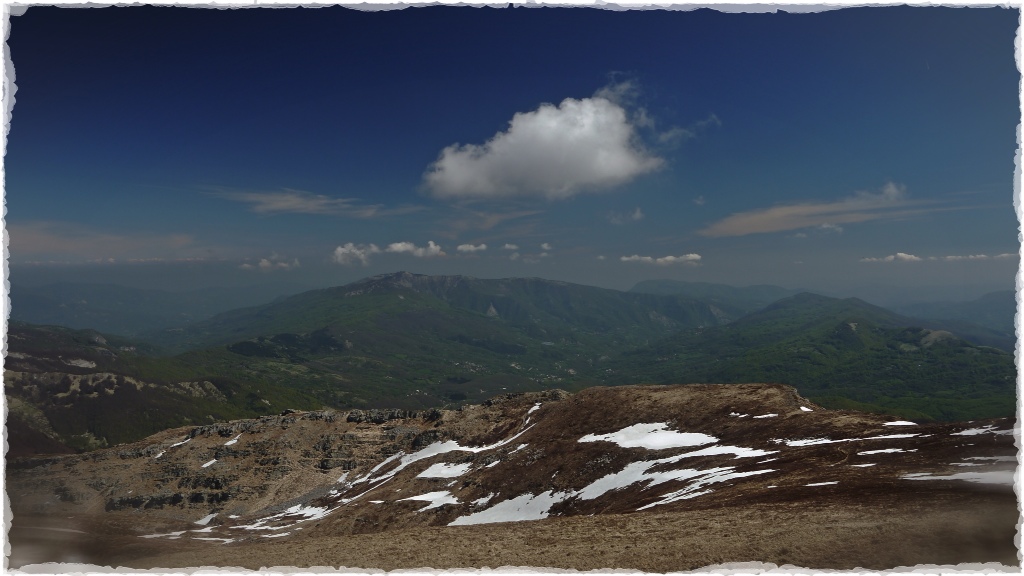
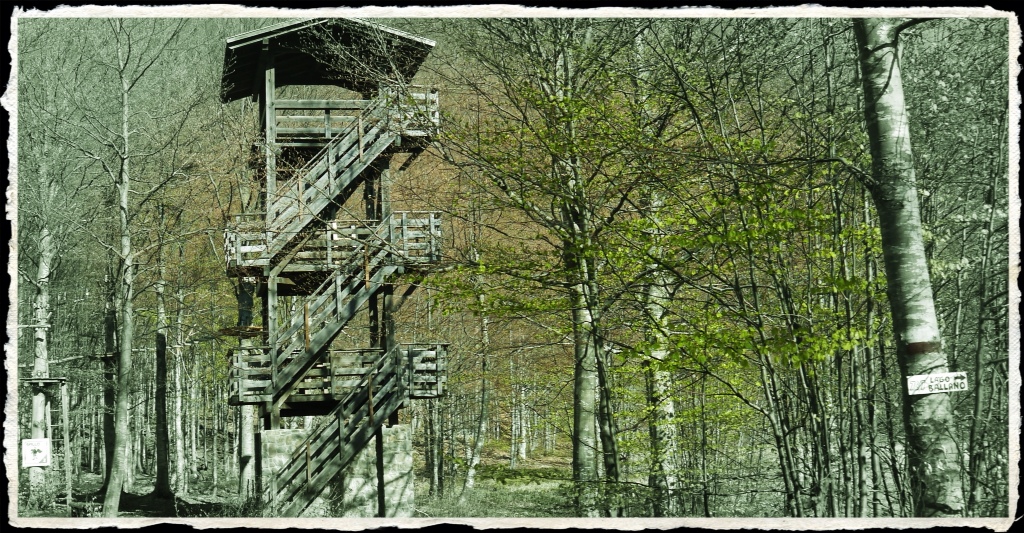
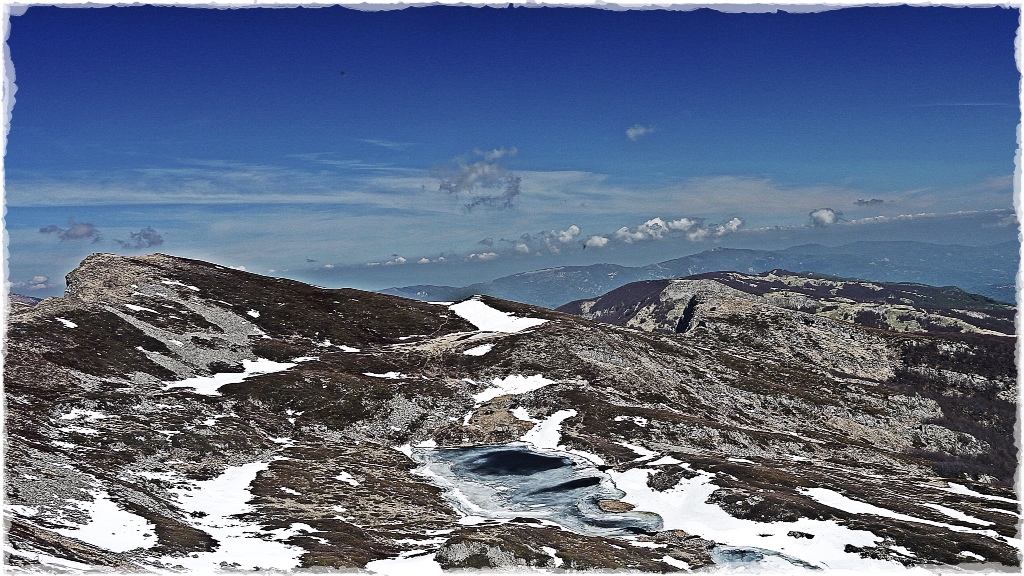
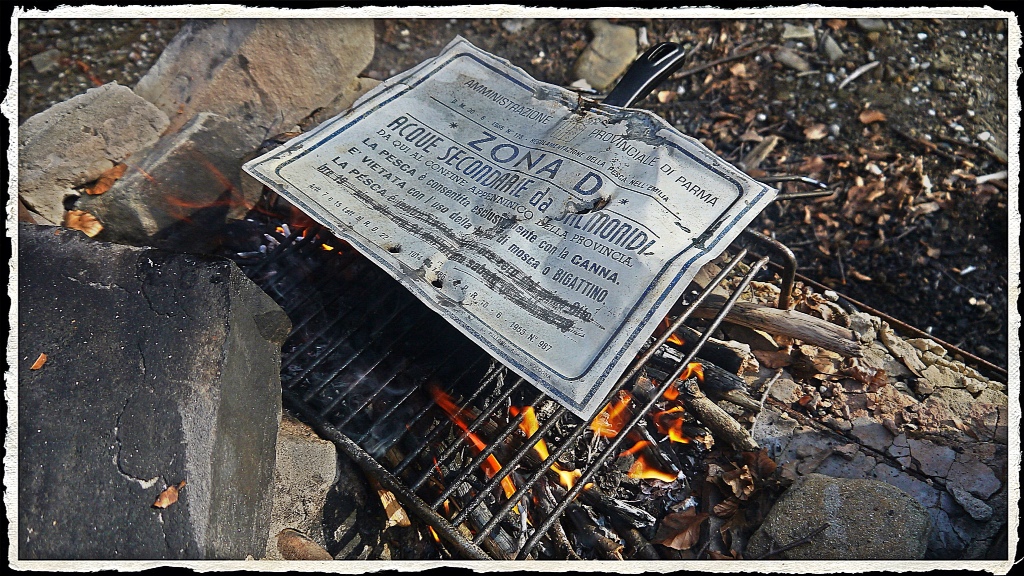
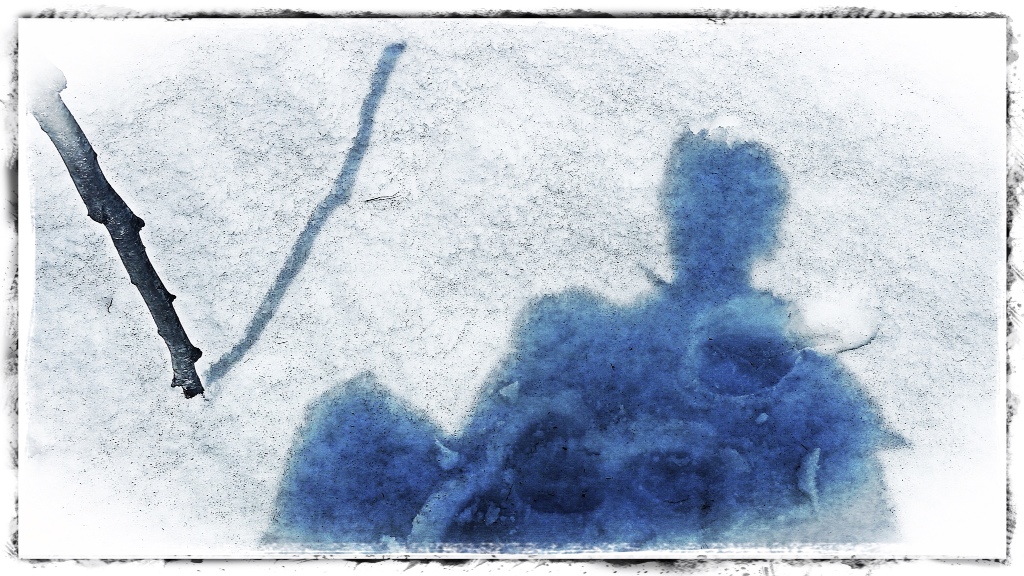
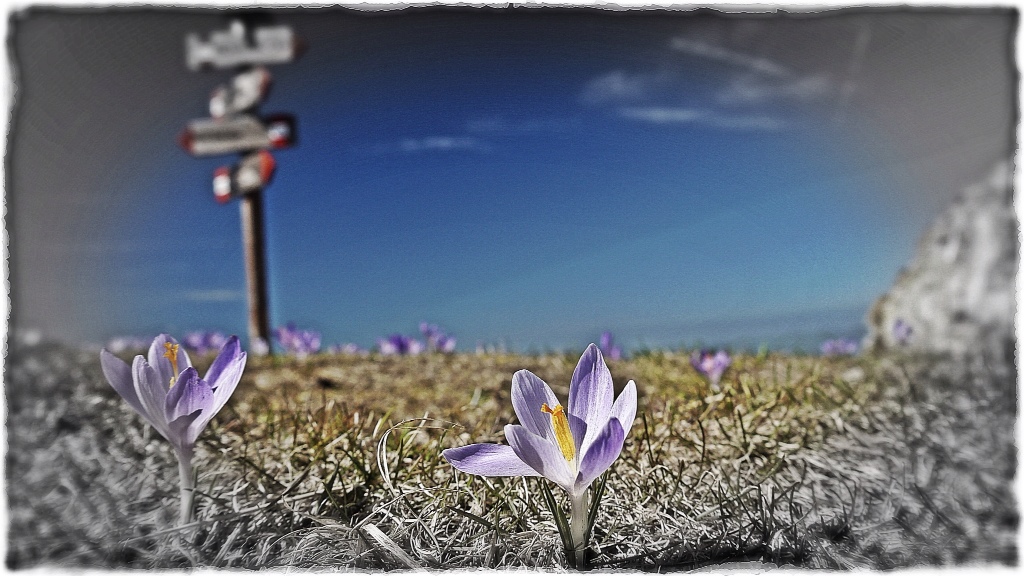
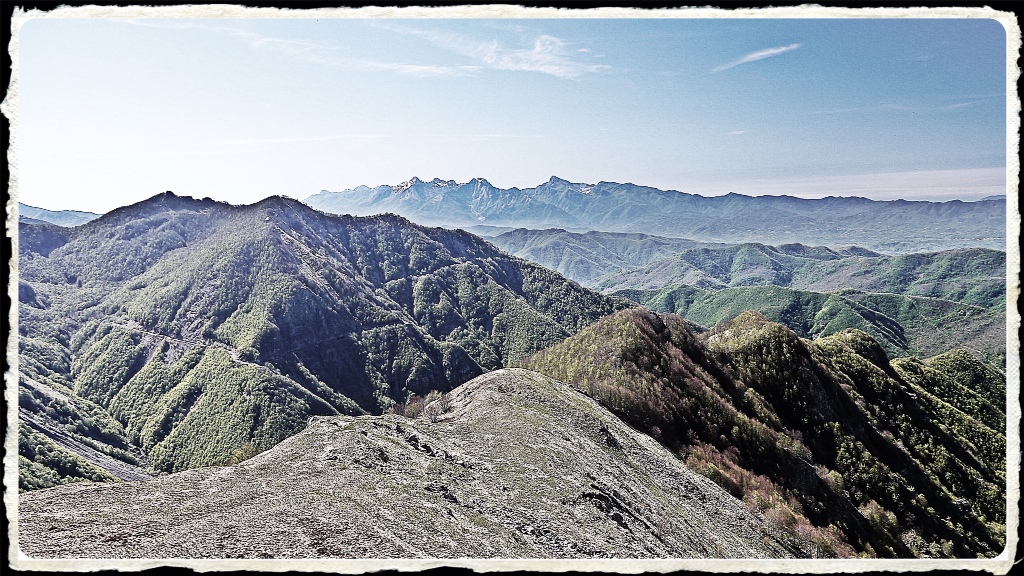
I love the beginning quote! Story of my life! I miss you already Thomas. It is 113 degrees here in Tennessee. I want to go back to London. (:
Hi! I remember when you were my tour guide two years ago with my school trip and I had the best time ever! I think your blog is absolutely awesome and that’s why I’ve nominated you for the One Lovely Blog award! You can check it out on my page http://practicallyperfectandcompletelydelusional.wordpress.com/2012/08/03/one-lovely-blog-award/
Keep up the great blogging! x